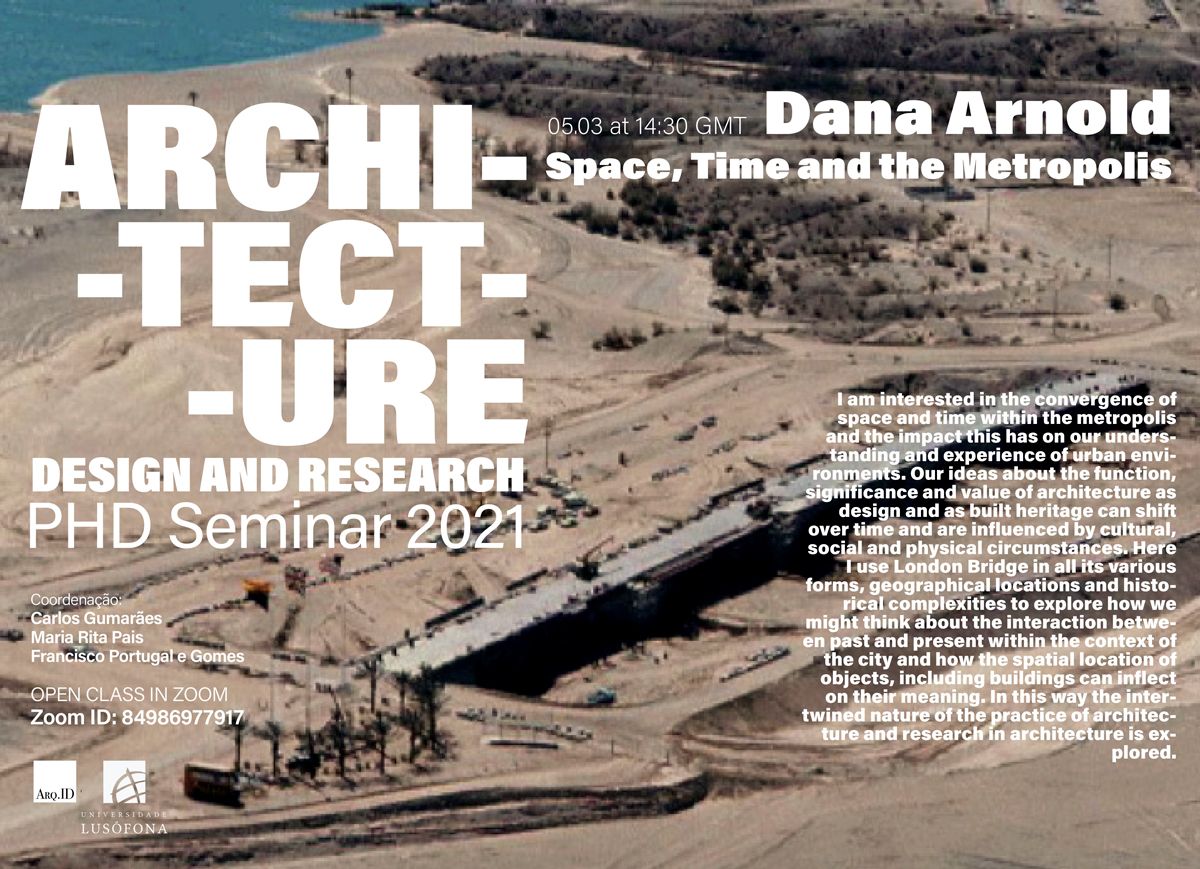Eventos
PhD Seminar: Dana Arnold – “Space, Time and the Metropolis”

The Architecture Departments of Lusófona University of Lisbon and Oporto are organizing a seminar – & Architecture: Design and Research – for the current academic year.
This week
Dana Arnold – Space, Time and the Metropolis
05 March 2021, 14:30 (GMT)
We invite you to participate: Zoom (class): https://videoconf-colibri.zoom.us/j/84986977917
Synopsis
I am interested in the convergence of space and time within the metropolis and the impact this has on our understanding and experience of urban environments. Our ideas about the function, significance and value of architecture as design and as built heritage can shift over time and are influenced by cultural, social and physical circumstances. Here I use London Bridge in all its various forms, geographical locations and historical complexities to explore how we might think about the interaction between past and present within the context of the city and how the spatial location of objects, including buildings can inflect on their meaning. In this way the intertwined nature of the practice of architecture and research in architecture is explored.
Biographical Note
My work focuses on histories of architecture and urbanism in relation to social and cultural theory. A number of my books, articles and edited volumes have made a substantial contribution to our understanding of London as a global city and as a visual phenomenon. For instance, my trilogy of monographs The Spaces of the Hospital, (Routledge 2013), Rural Urbanism: London landscapes in the early nineteenth century (MUP 2006) and Re-presenting the Metropolis (Ashgate 2000 and pbk 2018) offer theoretically informed, archivally based readings of the city as that enjoy international acclaim. I have also considered London in comparative contexts with other cities, especially Paris, and Tianjin in China. More broadly my work on the architectural dialogues between Britain, Turkey and the Middle East has explored how the built environment in all its complexities is experienced and used in the formulation of national and cultural identities and how these operate in a transcultural context.
The transnational aspects of my collaborative projects have informed my forthcoming book Architecture and Ekphrasis: Space, Time and the Embodied Description of the Past. Here I focus on the interaction between visual images and written histories of architecture. Using a broad evidence base of graphic representations of architecture, and drawing on my experience of cross-cultural dialogues, I argue that these images are in fact a form of writing that have syntactical and linguistic qualities that tell alternative histories of seeing and experiencing space.


